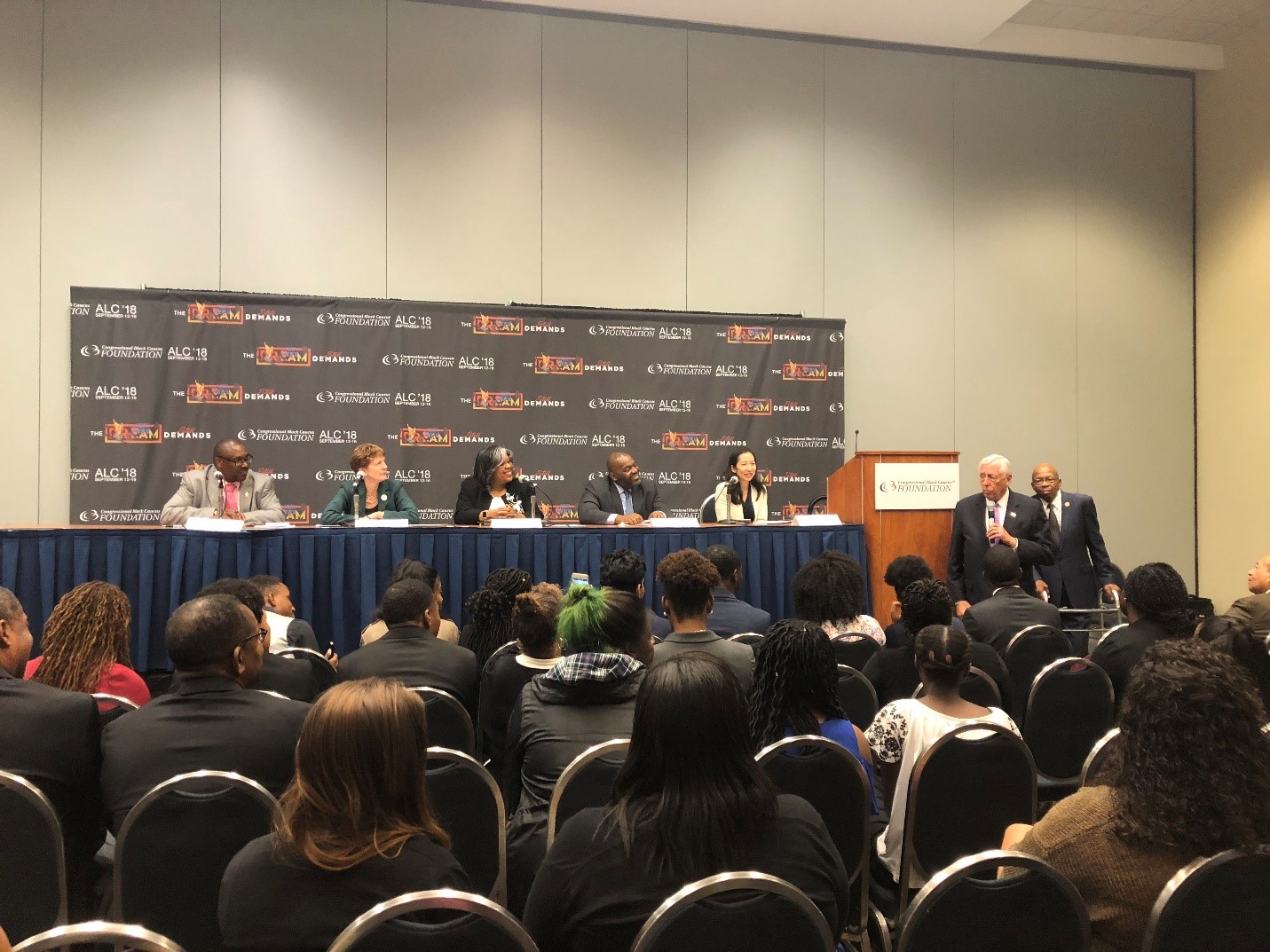Note From The Commissioner: Congressional Black Caucus Panel
Friday Sep 21st, 2018

At last week’s Congressional Black Caucus Foundation’s Annual Legislative Conference, Congressman Elijah E. Cummings invited me to serve as the moderator for his panel on opioids and communities of color. I was honored to host a discussion that featured statements from Congressman Cummings and Senator Elizabeth Warren, along with Mr. Cyril Scovens from Mi Casa Es Su Casa, Dr. Barbara DiPietro from Health Care for the Homeless, Dr. Aliya Jones from Bon Secours Hospital, and Dr. Scott Nolen from Open Society Institute – Baltimore.
We know the statistics on overdose deaths in Baltimore City – 761 lives were lost in our City in 2017 – and around the country, the numbers are just as staggering. These numbers are both terrifying and frustrating. They are terrifying because they keep increasing, and this isn’t the peak of the epidemic. They are frustrating because we know that, historically, drug overdoses disproportionately affected poor, minority communities and perpetuated existing disparities.
During the panel, we discussed how stereotypes and stigma impede efforts to treat the disease of addiction and save lives. We must acknowledge our history of criminalizing addiction and apologize to generations of communities that have been decimated because of our so-called and failed war on drugs policy. We need to critically address this underlying issue of structural racism that has gotten us to where we are. To close the treatment gap, we must treat all people with addiction as patients with a chronic disease – just as we treat patients with heart disease or diabetes.
We also looked at what works. At the Baltimore City Health Department, we are aggressively addressing addiction and overdose with our comprehensive three-pillar strategy. First, we are saving lives with naloxone. To date, the roughly 43,000 Baltimore residents trained to administer naloxone have saved the lives of nearly 3,000 individuals. Second, we are expanding access to opioid addiction treatment, including medication-assisted treatment, psychosocial support, and wrap-around services. We are proud to host the state’s first stabilization center, which provides patients with medical screenings and referrals to treatment. Third, we reduce stigma and prevent addiction.
We closed the panel last Friday by discussing what we can do. If we know what works, how can we save more lives in our communities? Right now, we are severely limited by the lack of sufficient resources. The Comprehensive Addiction Resources Emergency (CARE) Act, introduced by Senator Elizabeth Warren and Congressman Cummings, would deliver sustained funding to address addiction and overdose. In part, the CARE Act would prevent health departments like ours from having to ration naloxone because of its high cost. We must all advocate for increased state and federal funding to address the opioid epidemic. Addiction is a disease, treatment exists, and recovery is possible.
Sincerely,
Leana Wen, M.D., M.Sc.
